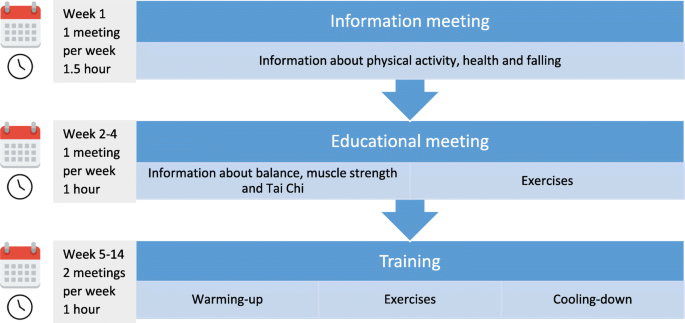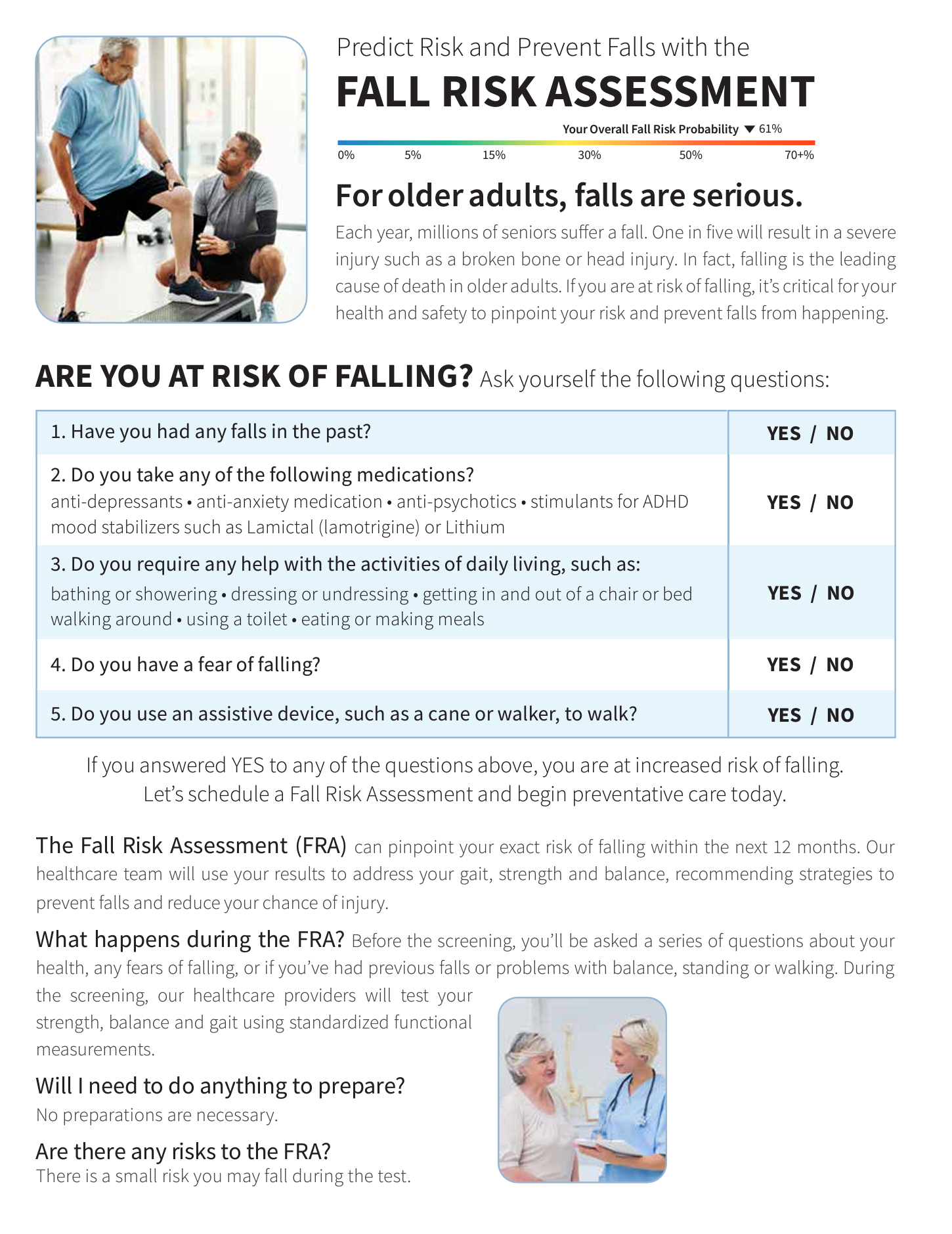Dementia Fall Risk Things To Know Before You Buy
Wiki Article
Getting My Dementia Fall Risk To Work
Table of ContentsThe Of Dementia Fall RiskThe smart Trick of Dementia Fall Risk That Nobody is DiscussingSome Known Facts About Dementia Fall Risk.Some Ideas on Dementia Fall Risk You Need To KnowDementia Fall Risk - The Facts
Ensure that there is an assigned location in your medical charting system where team can document/reference scores and document pertinent notes associated to fall avoidance. The Johns Hopkins Loss Threat Analysis Tool is one of several devices your team can make use of to assist avoid damaging clinical occasions.Individual falls in health centers prevail and devastating unfavorable events that linger despite decades of initiative to reduce them. Improving interaction across the analyzing registered nurse, treatment team, individual, and individual's most involved family and friends may strengthen fall prevention initiatives. A group at Brigham and Women's Medical facility in Boston, Massachusetts, sought to develop a standardized fall avoidance program that focused around enhanced interaction and individual and household engagement.

The innovation group emphasized that effective implementation depends on client and personnel buy-in, combination of the program right into existing workflows, and integrity to program procedures. The team kept in mind that they are coming to grips with just how to make certain continuity in program application throughout durations of dilemma. During the COVID-19 pandemic, for instance, a boost in inpatient falls was connected with limitations in individual involvement in addition to limitations on visitation.
Not known Details About Dementia Fall Risk
These incidents are generally taken into consideration avoidable. To carry out the intervention, companies need the following: Accessibility to Fall suggestions resources Fall TIPS training and re-training for nursing and non-nursing team, including brand-new nurses Nursing process that permit for patient and household involvement to perform the drops evaluation, guarantee use the prevention strategy, and perform patient-level audits.The results can be extremely damaging, usually speeding up patient decline and causing longer hospital keeps. One study estimated remains enhanced an added 12 in-patient days after an individual loss. The Fall TIPS Program is based on engaging individuals and their family/loved ones throughout 3 main processes: analysis, customized preventative treatments, and bookkeeping to guarantee that patients are involved in the three-step loss avoidance procedure.
The person assessment is based upon the Morse Fall Range, which is a validated loss risk assessment tool for in-patient medical facility setups. The range includes the six most common reasons patients in health centers fall: the person autumn history, high-risk problems (including polypharmacy), use IVs and other outside tools, mental standing, gait, and wheelchair.
Each risk element relate to several workable evidence-based treatments. The registered nurse produces a strategy that incorporates the treatments and is noticeable to the care team, patient, and family members on a laminated poster or printed visual aid. Nurses develop the strategy while meeting the person and the client's family.
Our Dementia Fall Risk Ideas
The poster works as an interaction tool with other members of the individual's care team. Dementia Fall Risk. The audit part of the program includes assessing the client's knowledge of their danger elements and avoidance plan at the unit and medical facility levels. Registered nurse champions perform at the very least 5 individual meetings a month with individuals and their family members to inspect for understanding of the fall avoidance strategy

An approximated 30% of these drops result in injuries, which can vary in intensity. Unlike other negative events that call for a standardized clinical feedback, autumn avoidance depends highly on the demands of the individual.
The Only Guide for Dementia Fall Risk

Based upon bookkeeping results, see this website one site had 86% compliance and two sites had over 95% conformity. A cost-benefit evaluation of the Autumn suggestions program in 8 hospitals approximated that the program cost $0.88 per client to carry out and caused financial savings of $8,500 per 1000 patient-days in direct costs connected to the avoidance of 567 falls over 3 years and eight months.
According to the advancement group, organizations thinking about applying the program ought to perform a preparedness evaluation and drops prevention voids analysis. 8 Furthermore, organizations need to guarantee the essential facilities and process for execution and establish an application strategy. If one exists, the organization's Autumn Avoidance Task Pressure ought to be associated with planning.
Dementia Fall Risk for Beginners
To start, organizations should ensure completion of training modules by registered nurses and nursing aides - Dementia Fall Risk. Medical facility personnel should evaluate, based on the needs of a healthcare facility, whether to utilize an electronic health and wellness document hard copy or paper variation of the loss prevention strategy. Executing groups visit this page must hire and train registered nurse champions and develop procedures for auditing and reporting on fall dataStaff need to be associated with the process of upgrading the workflow to engage patients and family in the assessment and avoidance strategy procedure. Equipment must be in place so that units can understand why a loss took place and remediate the cause. More specifically, nurses ought to have channels to offer continuous responses to both staff and system management so they can adjust and improve fall avoidance workflows and connect systemic problems.
Report this wiki page